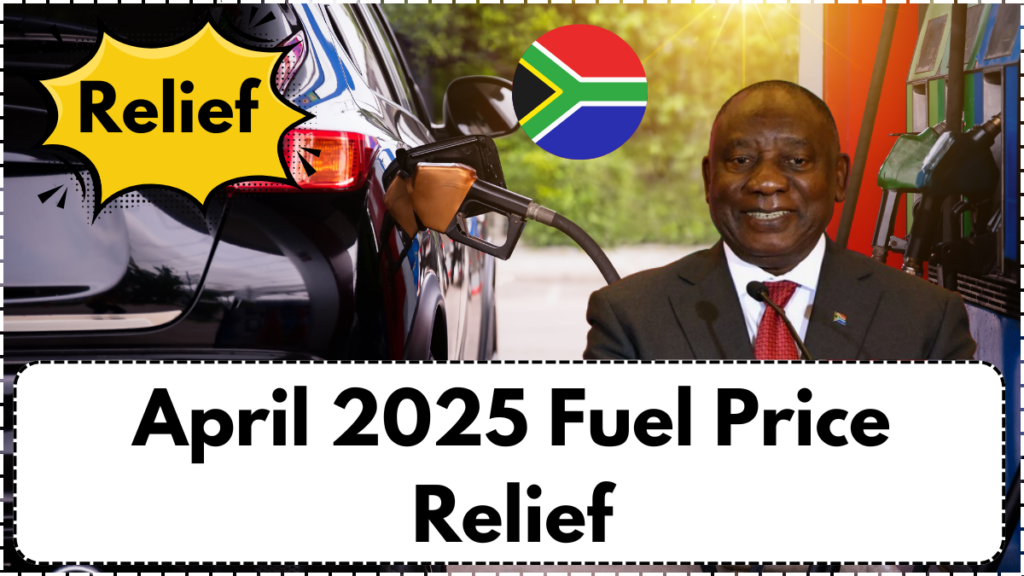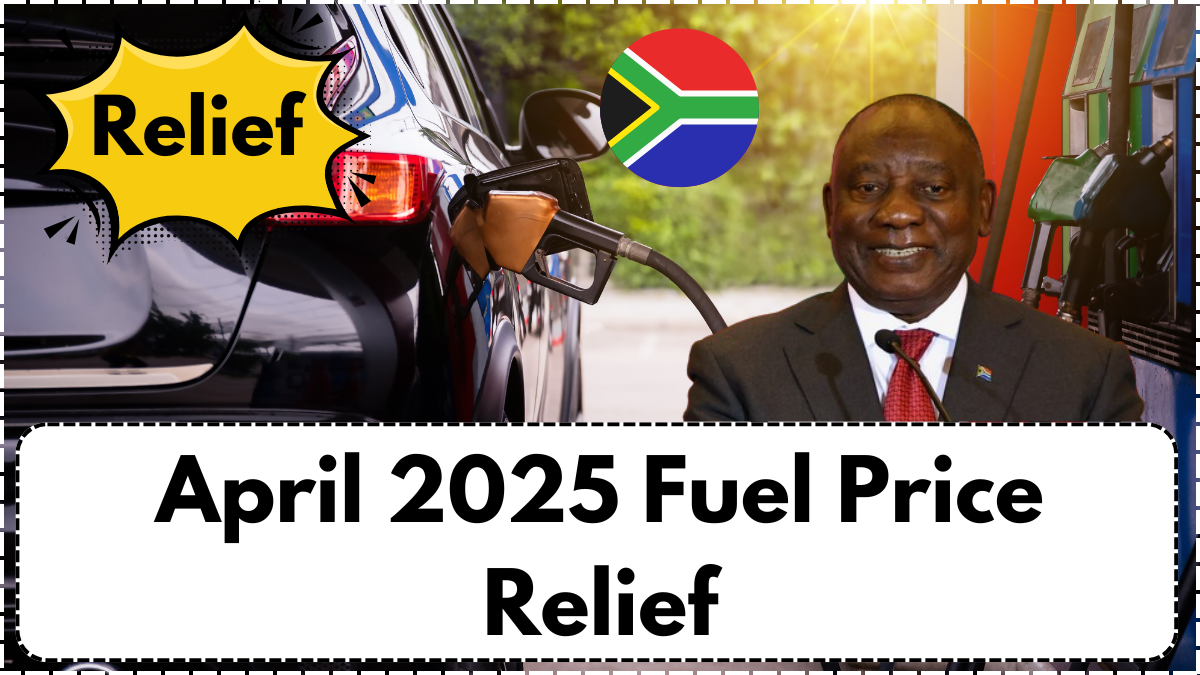The beginning of April 2025 brought welcome relief for South African motorists as fuel prices experienced a moderate but significant decline. This adjustment, implemented by the Department of Mineral Resources and Energy, offers much-needed financial relief to consumers grappling with the ever-increasing cost of living.

Revised Fuel Prices Take Effect Nationwide
As of April 5, 2025, new fuel prices have been officially rolled out across the country. Various fuel categories have seen reductions, making petrol and diesel more affordable for consumers. The key changes include:
- Unleaded and Lead-Replacement Petrol (93 & 95 Octane): Reduced by 7 cents per litre.
- Diesel (0.05% Sulphur): Decreased by 17.5 cents per litre.
- Diesel (0.005% Sulphur): Lowered by 23.5 cents per litre.
- Illuminating Paraffin: Cut by 6 cents per litre.
- Liquefied Petroleum Gas (LPGas): Dropped by 2 cents per kilogram.
These reductions offer slight but meaningful savings for motorists and businesses that rely heavily on fuel for daily operations.
Updated Regional Fuel Prices
Following these adjustments, South African fuel prices have changed as follows:
| Fuel Type | Inland Price (Rands per litre) | Coastal Price (Rands per litre) |
|---|---|---|
| Petrol 93 Octane | R22.09 | R21.30 |
| Petrol 95 Octane | R22.34 | R21.55 |
| Diesel (0.05% Sulphur) | R20.16 | R19.37 |
| Diesel (0.005% Sulphur) | R20.21 | R19.45 |
This pricing structure ensures a fair balance between inland and coastal regions, reflecting transport and logistical cost differences.
Factors Behind the Fuel Price Decrease
Several global and local economic factors have contributed to the April 2025 fuel price decline. These include:
1. Decline in Global Oil Prices
A significant drop in the price of Brent Crude oil played a crucial role in reducing fuel prices. The average cost of crude oil fell from $77.41 to $74.89 per barrel, driven by:
- Weakened Global Demand: Economic slowdowns in key markets led to lower fuel consumption.
- Oversupply from Non-OPEC Countries: Increased oil production from non-OPEC producers added to global supply, contributing to price reductions.
- Geopolitical Developments: Improved diplomatic negotiations in the Russia-Ukraine conflict raised hopes of a stable oil supply, further influencing price trends.
2. Strengthening of the South African Rand
The South African Rand experienced slight appreciation during the review period, improving from R18.73 to R18.50 against the US dollar. A stronger rand effectively lowered the cost of importing crude oil and refined petroleum products, making fuel prices more affordable domestically.
3. Refinery Operations and Seasonal Shifts
While gasoline prices saw slight fluctuations due to refinery maintenance in the United States—particularly as the transition to summer-grade fuel began—overall reductions in global crude oil costs helped counteract these temporary increases. The international market continues to influence South Africa’s fuel pricing structure, which is adjusted monthly based on external economic trends.
Impact on Consumers and Businesses
The decrease in fuel prices, though relatively small, offers notable benefits for both individuals and businesses:
1. Relief for Households
For South African households, lower fuel costs translate to potential savings on transportation expenses. Whether commuting to work, running daily errands, or managing household budgets, reduced petrol and diesel costs help ease financial burdens.
2. Benefits for the Transport and Logistics Sector
Businesses in the transport and logistics industries stand to benefit significantly from lower diesel prices. Reduced fuel costs mean lower operational expenses, which can help curb inflationary pressures and stabilize pricing for goods and services.
3. Economic Ripple Effect
Fuel price adjustments directly impact inflation rates and economic activities. Lower fuel costs often lead to:
- Reduced transportation costs for goods.
- Potential price stability in essential commodities.
- Improved affordability for consumers across various sectors.
Future Fuel Price Trends: What to Expect?
Despite the April 2025 fuel price reduction, South Africa’s fuel pricing remains volatile due to its dependence on global oil markets and currency fluctuations. Future price trends will be influenced by:
- Ongoing geopolitical developments that could disrupt oil supply chains.
- Fluctuations in global energy demand, particularly in major economies like the U.S., China, and Europe.
- Exchange rate movements, as a weaker or stronger rand directly affects import costs.
Motorists are advised to stay updated with monthly fuel price adjustments to better plan their budgets and expenses.
Final Thoughts
The drop in fuel prices for April 2025 provides some relief for motorists and businesses, though long-term trends remain uncertain. Staying informed about fuel price adjustments and understanding their broader economic impact can help consumers and businesses make better financial decisions.
Frequently Asked Questions (FAQ)
1. Why did fuel prices decrease in April 2025?
Fuel prices dropped due to a combination of lower global crude oil prices, a stronger South African Rand, and adjustments in international oil supply dynamics.
2. How often are fuel prices adjusted in South Africa?
Fuel prices are reviewed and adjusted monthly by the Department of Mineral Resources and Energy, based on factors such as global oil prices and exchange rates.
3. Will fuel prices continue to drop in the coming months?
Future price trends depend on global market conditions, currency fluctuations, and geopolitical events. While April saw a decrease, fuel prices may fluctuate based on external economic factors.
4. How do fuel price changes affect everyday consumers?
Lower fuel prices reduce transportation costs, indirectly lowering the cost of goods and services. This can help alleviate some of the financial strain caused by rising living costs.
5. Where can I check for official fuel price updates?
Official fuel price updates are announced by the Department of Mineral Resources and Energy and can also be found on major news platforms and government websites.
Click here to know more.
Pari is a passionate writer known for captivating stories that blend imagination and reality. Inspired by travel, history, and everyday moments, Pari crafts narratives that resonate deeply with readers.
